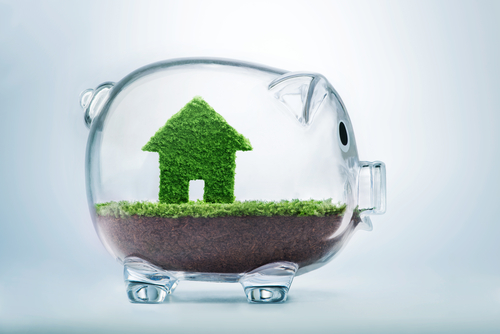‘Retrofitting to decarbonise UK existing housing stock’ looks at the existing policy landscape across retrofitting and provides a blueprint for government to take forward as part of its ‘resilient recovery’ from Covid-19.
The paper outlines how government incentives can promote positive consumer behaviour, and both entice and support more people to consider making their homes energy efficient.
The policy recommendations are encapsulated in a package of regulatory measures, industry standards, fiscal levels and market insight. The recommendations include:
• A uniform VAT rate of 5% for home improvement and repair to houses to enhance energy efficiency, to be carried out by an accredited installer or contractor with a recognised quality mark.
• A review of the impact of the Minimum Energy Efficient Standards at point of sale as part of the regulatory ambitions to bring all dwellings to an EPC rating of C by 2035.
• Government to support industry in the growth and regulation of the PropTech sector, to fully exploit the value of property-based data in aiding greening homes.
• Government must engage with industry to improve public awareness of standards and professional competency-based advice and training regarding energy efficiency retrofits and wider home improvement works, especially for heritage buildings which are more complex and present a skills gap in the market.
• Government must create long-term policy and regulatory energy efficiency roadmaps to bring confidence to the financial sector, encouraging mortgage lenders to invest and develop products to support these ambitions.
Dr Patrice Cairns, RICS policy manager, commented: “Retrofitting provides the UK with an opportunity to achieve both operational carbon and significant embodied carbon savings through re-use rather than re-build. Government ambitions are clear, but the policy route is uncertain.”
She said that, as the UK prepares to spend more time at home, for work as well as leisure, the benefits of green home improvements will continue to gather momentum.
“Government must use this unique opportunity to review their existing policies, working with the expertise of industry, and implement a holistic approach to retrofitting,” she added.
The built environment sector contributes significantly to national energy use and carbon emissions, RICS says. The body says that when new-build housing –- which has been subject to increasing energy efficiency standards - only makes up 1-2% of total building stock each year, there is a need to accelerate the pace of decarbonising the UK’s existing housing stock, to meet net-zero ambitions.
“There is an urgent need to address improving the energy efficiency within the UK’s building stock and retrofitting provides this opportunity,” Dr Cairns said. “To achieve significant carbon savings, the government must bring forward a package of policy measures without delay.”
She said that government endorsing RICS’ call to reduce the VAT regime for home repairs, maintenance and improvement work would be a swift step in the right direction.
“This will not be straightforward and requires a significant step change to accelerate pace, but will result in a reduction in carbon emissions, be an economic stimulator, and can deliver positive social benefits through improving indoor health and wellbeing and skilled job creation.”
Simon Rubinsohn, RICS chief economist, added: “As the government begins to think about a strategy for rebuilding the economy in the wake of the Covid-induced recession, committing to a more sustainable stock of housing provides a unique opportunity both to kickstart business activity and focus on the green agenda.”
He said that, although the incentive to encourage retrofitting will carry an initial cost, it will be at least in part offset by the benefits associated with job creation, ‘which will be much-needed in the wake of the likely rise in unemployment as the furlough scheme begins to unwind over the summer.”
He concluded: “It will also provide tangible long-term rewards both for the wider economy and individual households.”
Before the Budget in March of this year, RICS called for the new Chancellor to make housing and the built environment greener, setting out a wish-list which had a big focus on the environment.
The body is far from the only one taking green issues very seriously. Developers and investors are increasingly factoring the environment, and energy efficiency, in when it comes to building new developments or deciding on buying strategies.
This is only likely to continue as we ease out of lockdown and the desire is there for the unintended eco benefits of the last two months to be built upon rather than wasted.







.png)



.jpg)





Join the conversation
Be the first to comment (please use the comment box below)
Please login to comment